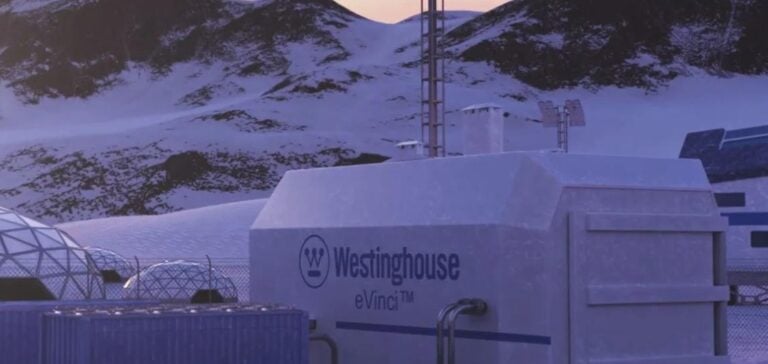The province of Saskatchewan in Canada is taking an innovative approach to meeting its unique energy needs, turning to nuclear power with the eVinci micro-reactor project, developed by Westinghouse. Indeed, this initiative stands out for its ability to generate 5MW of electricity and 13MW of high-temperature heat. Saskatchewan Premier Scott Moe emphasizes the transformative potential of this project for the local economy, industry and communities.
Towards Clean, Efficient Energy
The eVinci micro-reactor represents a significant breakthrough in the field of nuclear energy. However, this fully transportable heat pipe reactor is designed to meet Saskatchewan’s specific energy requirements. Westinghouse CEO Patrick Fragman emphasizes the ecological advantages of the eVinci, which requires no water and can be completely removed from the site after eight years of continuous operation. It focuses on carbon-free energy production, a crucial aspect in the current climate crisis.
Regulatory framework and future prospects
Westinghouse has initiated a pre-market review of the eVinci reactor with the Canadian Nuclear Safety Commission, ensuring its compliance with Canadian regulatory standards. This approach is also designed to facilitate the future deployment of micro-reactor projects in the province. SRC Minister Jeremy Harrison sees the first micro-reactor as a gateway to future deployments across Saskatchewan, creating opportunities for economic development and employment.
A Favorable Mining Context
Saskatchewan, home to the world’s largest high-quality uranium mines, is ideally positioned to embrace nuclear power. However, the province does not yet have any nuclear reactors in operation. In collaboration with the provinces of Ontario, New Brunswick and Alberta, Saskatchewan is working on the deployment of small modular reactors (SMRs), with a joint strategic plan launched in 2022. SaskPower, the provincial energy company, is currently identifying suitable sites for the SMR deployment planned for the mid-2030s.
The eVinci micro-reactor project in Saskatchewan represents a significant step towards a sustainable energy solution, positioning the province as a key player in the clean, efficient nuclear energy sector.






















